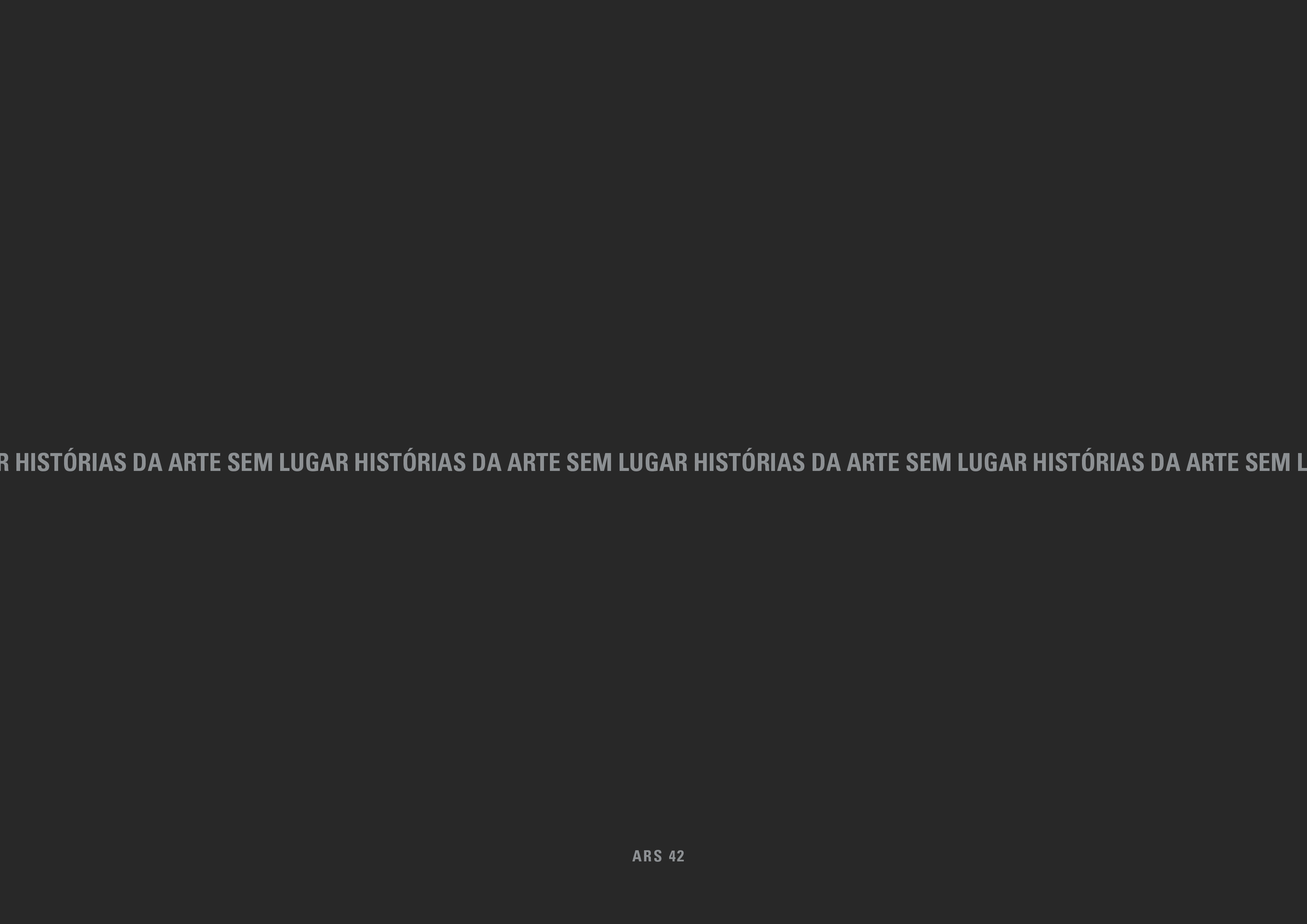The Lettrist Cinema in 1968: The Café-Cinema Experience and Le soulèvement de la jeunesse
DOI:
https://doi.org/10.11606/issn.2178-0447.ars.2021.185265Keywords:
Lettrist Vanguard, May 1968, Experimental CinemaAbstract
Between 1967 and 1969, the lettrist vanguard maintains a café-cinema, combining experimental projections and artistic interventions inspired by the group's previous practices. In the light of this experience, the aim is to examine the lettrists’ positions in relation to 1968’s events from three steps. Firstly, a mapping of cafe-cinema activities and manifestos in their continuities with remaining lettrist practices. In a second moment, we emphasize the conceptual debate of such continuities based on the ideas of collage, everyday life and youth. Finally, we analyze the film Le Soulèvement de la jeunesse (1968), by Maurice Lemaître, identifying a self-centered construction that takes rebellions as the consolidation of the theories announced by Isidore Isou in the book Traité d’économie nucléaire (1949).
Downloads
References
ALIX, Frédéric. Isidore Isou et la jeunesse en mai 68: un rendez-vous manqué. 2016. Disponível em: https://www.academia.edu/40901814/Isidore_Isou_et_la_ jeunesse_un_rendez_vous_manqu%C3%A9. Acesso em: 7 ago. 2020.
ALIX, Frédéric. Penser l’art et le monde après 1945. Isidore Isou, essai d’archéologie d’une pensée. Paris: Presses du réel, 2017.
ARGAN, Giulio C. Arte moderna. São Paulo: Cia das Letras, 1992.
BOUHOURS, Jean-Michel. Maurice Lemaître. Paris: Centre Georges Pompidou,1995.
BRENEZ, Nicole; CHODOROV, Pip. Cartografia do found footage. Revista Laika, vol. 3, n. 5, jun. 2014, pp. 1-11.
BRILLANT, Bernard. Intellectuels: les ombres changeantes de mai 68. Vingtième Siècle. Revue d'histoire, vol. 98, 2008, pp. 89-99.
DEBORD, Guy; WOLMAN, Gil J. Mode d'emploi du détournement. Les Lèvres Nues, n. 8, mai 1956, pp. 2-9.
DEBORD, Guy. Rapport sur la construction des situations et sur les conditions de l’organisation et de l’action de la tendance situationniste internationale. In Internationale situationniste 1958-1969. Paris: Fayard, 1997.
DEVAUX, Frédérique. Le cinema lettriste (1951-1991). Paris: Paris Experimental, 1992.
DIDI-HUBERMAN, Georges. Images malgré tout. Paris: Les Éditions de Minuit, 2003.
FDBLG - Fonds de Dotation Bismuth Lemaître Guymer. 2012-2020. Une Chronologie du Lettrisme. Paris. Disponível em: https://www.mauricelemaitre. org/fr/une-chronologie-du-lettrisme/. Acesso em: 10 ago. 2020.
FERRY, Luc; RENAUT, Alain. Pensamento 68: ensaio sobre o anti-humanismo contemporâneo. São Paulo: Editora Ensaio, 1988.
GIRARD, Bernard. Lettrisme – l’ultime avant-guarde. Paris: Presses du réel, 2010.
GUILLAUMAIN, Marc-Gilbert (ed.). ION, Paris, Centre de Création, Paris, v. 1, 1952.
ISOU, Isidore. Le soulèvement de la jeunesse premier manifeste. [1950]. In ISOU, Isidore. Les Manifestes du Soulèvement de la Jeunesse (1950-1966). Marselha: Al Dante, 2004.
ISOU, Isidore. Traité d’économie nucléaire: le soulèvement de la jeunesse, problème du bicaténage et de l’externité. [1949]. Paris: Éditions Maurice Lemaître, 1957.
ISOU, Isidore. Les lettristes sont irrécupérables jusqu’à la société de l’éternité concrète, paradisiaque. La novation, n. 9-10, jun. 1978, n.p.
LEBRAT, Christian et al. French experimental cinema the richness of the 1970’s. In LEBRAT, Christian. Radical Cinema. Paris: Paris Expérimental/Eyewash Books, 2020, p. 165-174.
LEFEBVRE, Henri. Critique de la vie quotidienne II. Paris: L’Arche Éditeur, 1961.
LEFEBVRE, Henri. L’irruption de Nanterre au sommet. [1968]. Paris: Éditions Syllepse, 1998.
LEMAÎTRE, Maurice. Qu’est-ce que le lettrisme? Paris: Éditions Fishbacher, 1954.
LEMAÎTRE, Maurice. Union de la Jeunesse et de l’éxternité – Éléctions législatives de mars 1967 24e. [folheto]. Circonscription, 1967.
LEMAÎTRE, Maurice. 1967-1969 Café-cinéma Lemaître suivi de huit films lettristes. Paris: Paris Expérimental, 2003.
LEMAÎTRE, Maurice. Oeuvres de cinéma (1951-2007). Paris: Paris Expérimental, 2007.
MEKAS, Jonas. The First Statement of the New American Cinema Group. Film culture, n. 22-23, verão 1961, pp.130-133.
MARCUSE, Herbert. O homem unidimensional. São Paulo: Edipró, 2015. NICHOLS, Bill. Introdução ao documentário. Campinas: Papirus Editora, 2012.
PAZ, Octávio. Marcel Duchamp ou o castelo da pureza. São Paulo: Perspectiva, 1977.
SABATIER, Roland. Du soulèvement de la jeunesse a la carte de la culture. In ISOU, Isidore. Les Manifestes du Soulèvement de la Jeunesse (1950-1966). Marselha: Al Dante, 2004, pp. 90-97.
TOURAINE, Alain. Le Mouvement de Mai ou le communisme utopique. Paris: Seuil, 1968.
THIOLLENT, Michel. Maio de 1968 em Paris: testemunho de um estudante. Tempo social, vol. 10, n. 2, 1998, pp. 63-100.
ZRYD, Michael. Found footage film as discursive metahistory. The Moving Image, vol. 3, n. 2, 2003, pp. 40-61.
FILMOGRAFIA
Chantal D. Star (1968), Maurice Lemaître, França, 26 min.
Chutes (1968), Maurice Lemaître, França, 12 min.
Le Soulèvement de la jeunesse – mai 1968 (1968), Maurice Lemaître, Collectif Jeune Cinéma, França, 26 min.
Les Actualités françaises – 29 mai 1968 (1968), Les Actualités françaises, França, 6 min.
Les Actualités françaises – Regards sur le monde: 1957, Les Actualités françaises, França, 1958, 9min.
Tous derrière Suzanne, jeune dure et pure! (1978-1995), Maurice Lemaître, França, 174 min.
Traité de bave et d'éternité (1951), Isidore Isou, prod. Marc’O, França, 120 min.
Un chien andalou (1929), Luis Buñuel e Salvador Dalí, França, 16 min.
Une oeuvre (1968), Maurice Lemaître, França, 15min.
Downloads
Published
Issue
Section
License
Copyright (c) 2021 Fábio Uchôa

This work is licensed under a Creative Commons Attribution-NonCommercial 4.0 International License.
The responsibility for obtaining written permission to use in the articles materials protected by copyright law lies entirely with the author(s). Ars is not responsible for copyright breaches made by its collaborators.
The authors have the copyrights and grant the journal the right of the first publication, with the article licensed under the Creative Commons BY-CC License.
Licensees have the right to copy, distribute, display, and carry out the work and make derivative works from it, including with commercial purposes, granted that they give the due credit to the author or licensor, as specified by them.
Licensees compromise to inform the appropriate credit, provide a link to the license, and indicate if changes were made.
Respected the terms of the license, the licensors/authors are not allowed to revoke the conditions above mentioned.
After the publication of the articles, the authors keep the copyrights and the rights to republish the text exclusively in unpublished books and collections.



